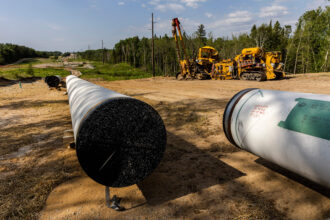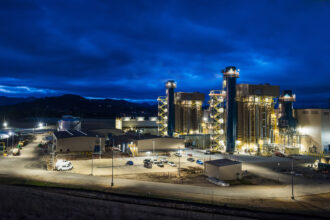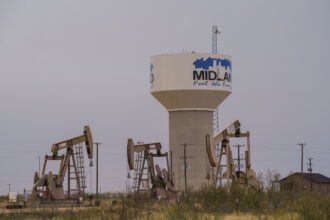A remote barrier island off Alaska’s northwest coast has been mobbed by thousands of Pacific walruses in recent weeks in the earliest known “haul out” for the species.
Their arrival is tied to shrinking Arctic sea ice and follows one of the hottest months on record. It also comes as Arctic sea ice extent is near a record low for this time of year.

Last month, global temperatures tied July 2016 for the warmest July in 137 years of modern record-keeping, according to a monthly analysis of global temperatures by scientists at NASA’s Goddard Institute for Space Studies. July numbers released today by NOAA, the National Oceanic and Atmospheric Administration, show a sliver of difference between the two years.

Arctic sea ice extent for July 2017 averaged 3.17 million square miles, marking the fifth lowest July in satellite records going back to 1979, according to the National Snow and Ice Data Center in Boulder, Colorado. Last month’s ice coverage was 610,000 square miles below the long-term average from 1981 to 2010.
Walruses rely on the ice as they hunt for food. They typically dive from floating blocks of ice to feed on clams on the ocean floor. As the ice floes melt, however, this vanishing habitat recedes farther north, beyond the shallow waters of the continental shelf and into Arctic waters too deep for the foraging animals. Then they haul up on shore, crowding together, sometimes in herds of thousands, where deadly stampedes can occur.
As of last week, approximately 2,000 of the marine mammals were on shore, U.S. Fish and Wildlife spokesperson Andrea Medeiros wrote in an email. Observers from the nearby Native village of Point Lay say they have already seen dead animals this year.
“This early haul out shows that Pacific walruses are in terrible trouble,” Emily Jeffers, an attorney with the Center for Biological Diversity said in a written statement. “The walrus, within the foreseeable future, will be at risk of extinction due to the loss of sea ice.”
The environmental advocacy organization has petitioned the federal Fish and Wildlife Service to protect Pacific walruses under the Endangered Species Act. A decision is expected by the end of September.
Mass walrus haul-outs were first observed off Point Lay in 2007, when Arctic sea-ice extent dropped 1 million square miles below average — an area the size of Alaska and Texas combined.
President Donald Trump’s efforts to withdraw from the Paris climate accord and to open the Arctic to offshore drilling would exacerbate sea ice loss and other threats to Pacific walruses, Jeffers said.
“If we’re going to save these amazing animals, the Trump administration has to give them the protections they need and stop pushing for dangerous oil drilling in the Arctic,” she said. “Any movement away from a transition to renewable energy is a threat to the walrus because sea ice melting is a result of carbon emissions and climate change.”
About This Story
Perhaps you noticed: This story, like all the news we publish, is free to read. That’s because Inside Climate News is a 501c3 nonprofit organization. We do not charge a subscription fee, lock our news behind a paywall, or clutter our website with ads. We make our news on climate and the environment freely available to you and anyone who wants it.
That’s not all. We also share our news for free with scores of other media organizations around the country. Many of them can’t afford to do environmental journalism of their own. We’ve built bureaus from coast to coast to report local stories, collaborate with local newsrooms and co-publish articles so that this vital work is shared as widely as possible.
Two of us launched ICN in 2007. Six years later we earned a Pulitzer Prize for National Reporting, and now we run the oldest and largest dedicated climate newsroom in the nation. We tell the story in all its complexity. We hold polluters accountable. We expose environmental injustice. We debunk misinformation. We scrutinize solutions and inspire action.
Donations from readers like you fund every aspect of what we do. If you don’t already, will you support our ongoing work, our reporting on the biggest crisis facing our planet, and help us reach even more readers in more places?
Please take a moment to make a tax-deductible donation. Every one of them makes a difference.
Thank you,














